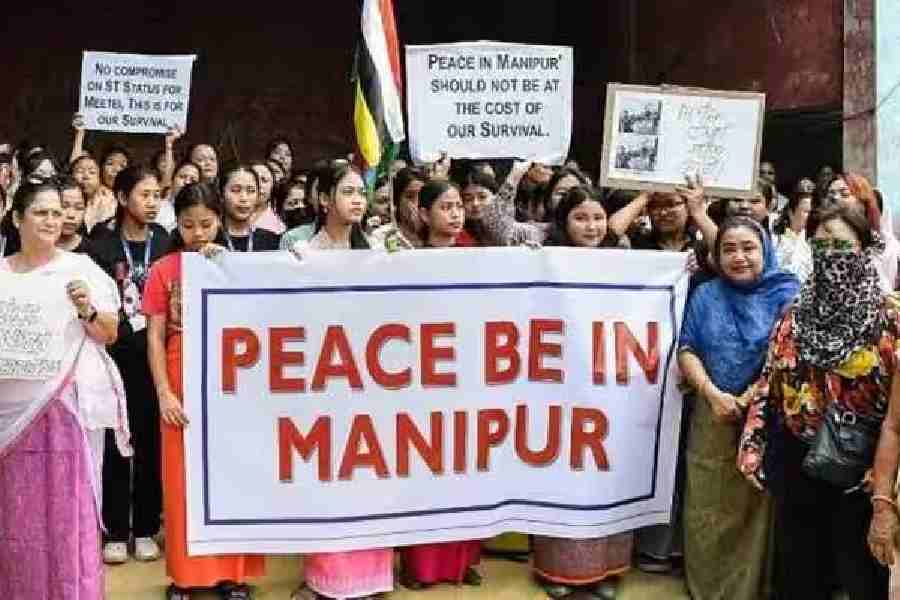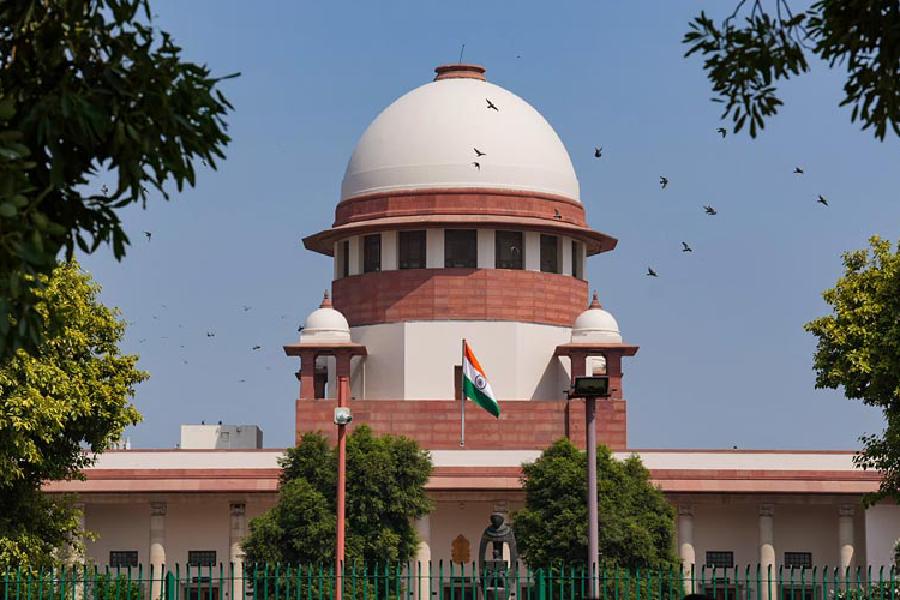Academics and activists on Tuesday highlighted the marginalisation of the secular ideal and civil society amid a rise in intolerance, State highhandedness and State-backed vigilantism at a panel discussion on “weaponising religion”, held at the Congress’s Jawahar Bhawan.
Babloo Loitongbam, a human rights activist and lawyer from Manipur, said: “I have just come from the state of Manipur yesterday… in self-exile because the situation there has become so tense that the security of people who try to apprise a more objective narrative has also come increasingly under threat because at the moment we are living in two echo chambers — the echo chamber of the Meitei, and the echo chamber of the Kuki.”
Loitongbam said the highhandedness of the State had left civil society marginalised.
“Manipur has 0.4 per cent of India’s population; 64 per cent of detainees under the (anti-terror law) UAPA were in Manipur, and this was the situation even before the BJP came to power,” he said.
He added that in 2001, when there was unrest over the demand for a greater Nagalim (Naga homeland), civil society groups in the Imphal valley had ensured that the public anger was directed only at the policies of the government and not the Naga residents of Manipur.
“The vacuum that has been created by constantly subjugating civil society is now filled by vigilante groups.... People who are supported by the State, funded by the State and enjoy the impunity to cause violence without any consequences. These groups have taken over the state,” Loitongbam said.
“Unfortunately, our honourable PM is yet to open his mouth on this whereas the US government is ready to come and help India, if it is asked for.... And, of course, there are neighbours who may not ask for India’s permission to interfere in this situation.”
Karwaan-e-Mohabbat, the NGO that organised the discussion, screened the trailer of an upcoming documentary on the recent anti-Muslim rallies in Maharashtra and their impact.
Former IAS officer Harsh Mander, who heads the NGO, said: “The Holocaust did not begin in the gas chambers, it began with hate speeches.”
Former bureaucrat Amitabha Pande said: “More than just political control over the administrative machinery and ensuring their compliance to serve communal ends, it is the primacy of national security, national prestige, economy, as a military power hobnobbing with global military giants, that large sections of the administration and the police see themselves as working for.
“Muslims and other minorities are viewed as having their primary allegiance to a pan-Islamic or pan-Christian world, and there within their worldview… they constitute a threat and brutal coercive action to keep them in control is (seen as) both legitimate and desirable.”
Delhi University professor Apoorvanand said: “I cannot clean your heart… but the minimum I can aspire to is that the rule of law be imposed, that hatred does not develop into violence. Karnataka has done that and in the last two months we see a rapid decline in communal crimes.”
Neera Chandoke, a retired professor who taught political science at Delhi University, said: “The government is not about governance alone. It is also not about development…. The job of the government is to make communities sensitive about each other and understand, but the present regime does not care about it.”
She added: “We have been turned from citizens into subjects because regimes are increasingly using spectacle to turn us into either audience or participants in violence.
“Let me talk about the spectacle of the sengol and the new Parliament. The Parliament represents us but did this reflect in the inauguration ceremony? Nobody opposed it because the people have been made to love him (Prime Minister Narendra Modi).”
While inaugurating the new Parliament building, Modi had installed in it a sengol – a Chola-style royal sceptre anointed by Hindu priests amid religious rituals.












